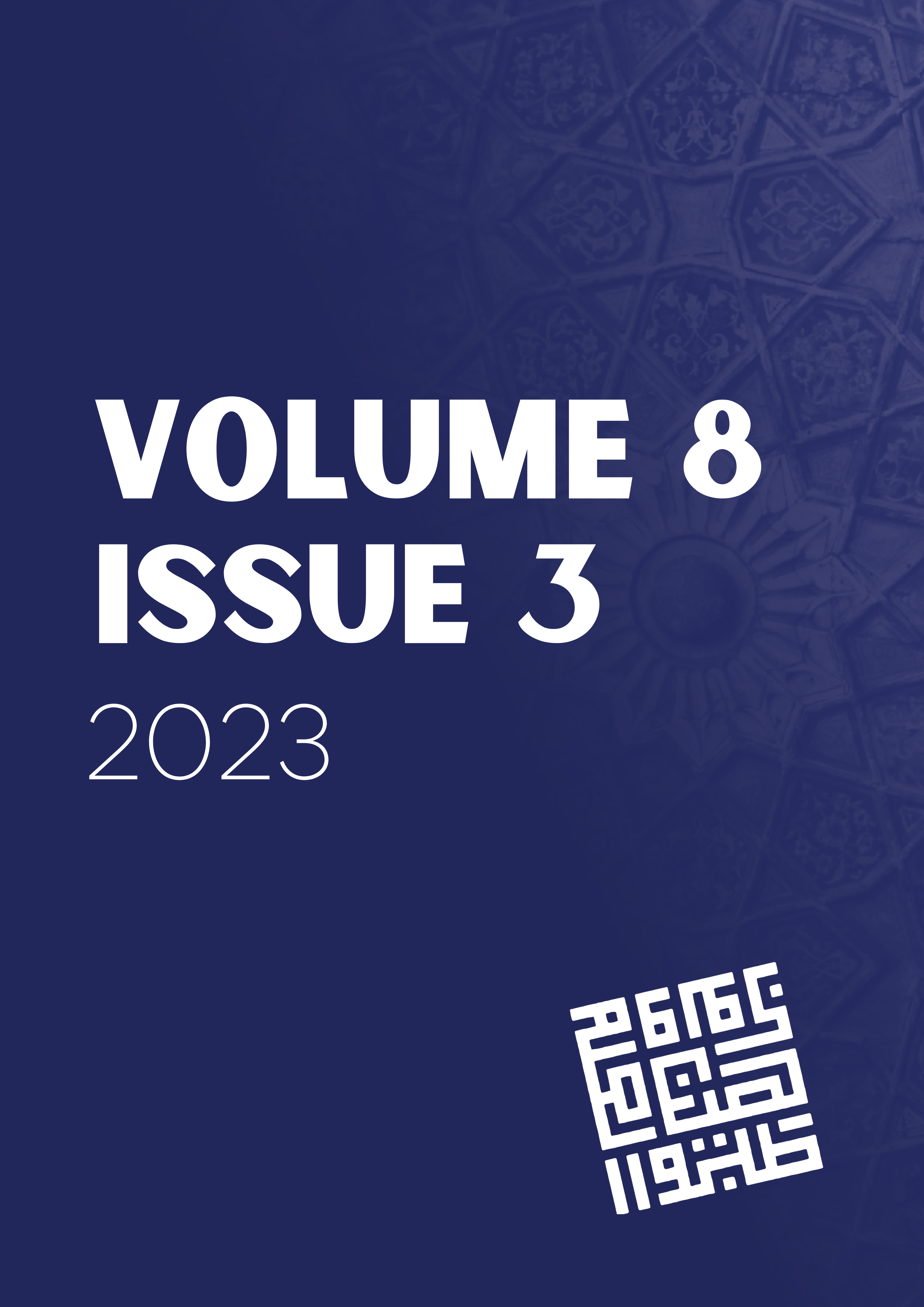Critical Reflections on Current Status of Scholarship in Islamic Psychology – Challenges and Solutions

Abstract
Islamic psychology, aimed at synthetising Islamic values with psychological theories, faces significant challenges despite its promise. This article presents a comprehensive review of the literature, revealing significant challenges that impede the development of an authentic Islamic psychology. The critical analysis, conducted through a qualitative review, is based on primary and secondary sources. The review critically challenges the issues of blind imitation, partialism, apologism, contradiction, epistemological biases and deconstructionism within contemporary Islamic psychology scholarship. The article emphasises their impact on knowledge creation and thought development in Islamic psychology. The key insights and recommendations resulting from the analysis of Islamic psychology scholarship include raising awareness of epistemological biases, critically evaluating assumptions, engaging directly with primary sources, embracing diverse perspectives, promoting collaboration and interdisciplinary approaches, and emphasising empirical validation. Implementing these recommendations can lead to a more authentic, inclusive and evidence-based approach to Islamic psychology. By addressing these challenges, the article suggests pathways toward the development of authentic Islamic psychology, fostering a more robust and integrated understanding that aligns with Islamic values.
Keywords
Islamic psychology, Psychology, Imitation, Partialism, Apologism, Intellectual humility, Scholarship
References
- Abd Rahman, Amilah Awang. “BIAS: Epistemological Bias in the Physical and Social Sciences.” Bangladesh Journal of Integrated Thoughts 17, no 2 (2022). https://doi.org/10.52805/bjit.v17i2.245.
- al-Bukhari, Muhammad. Sahih al-Bukhari. Translated by M. Muhsin Khan. https://sunnah.com/bukhari.
- at-Tabrizi, Khatib. Mishkat al-Masabih. Translated by James Robson. https://sunnah.com/mishkat.
- al-Tuwayjirī, Muhammad ibn Ibrāhīm. Mawsū’at Fiqh Al-Qulūb fī ḍawʼ al-Qurʼān wa-al-Sunnah [Encyclopedia of the Jurisprudence of the Hearts in the Light of the Qur'an and the Sunnah]. ‘Ammān: Bayt al-Afkār al-Dawlīyah, 2006.
- Andrade, Chittaranjan. “HARKing, Cherry-Picking, P-Hacking, Fishing Expeditions, and Data Dredging and Mining as Questionable Research Practices.” The Journal of Clinical Psychiatry 82, no. 1 (2021): 20f13804. https://doi.org/10.4088/JCP.20f13804.
- Auda, Jasser. Maqasid Al-Shariah as Philosophy of Islamic Law: A Systems Approach. Herndon, VA: International Institute of Islamic Thought, 2008. https://doi.org/10.2307/j.ctvkc67tg.
- Auda, Jasser. Re-envisioning Islamic Scholarship: Maqasid Methodology as a New Approach. Swansea: Claritas Books, 2021.
- Badri, Malik. “Preface.” In Applying Islamic Principles to Clinical Mental Health Care: Introducing Traditional Islamically Integrated Psychotherapy, edited by Hooman Keshavarzi, Fahad Khan, Bilal Ali and Rania Awaad, xxi. New York: Routledge, 2021.
- Calzon, Bernardita. “Misleading Statistics Examples – Discover the Potential for Misuse of Statistics & Data in the Digital Age.” Datapine. Last modified January 6, 2023. https://www.datapine.com/blog/misleading-statistics-and-data/.
- Elias, Abu Amina. “Hadith on Fitnah: Time of Few Scholars, Many Preachers.” Daily Hadith Online, June 6, 2017. https://www.abuaminaelias.com/dailyhadithonline/2017/06/06/fitnah-few-ulema-many-preachers/.
- Fox, Elaine. “Why Intellectual Humility Matters.” The British Psychological Society, July 28, 2022. https://www.bps.org.uk/psychologist/why-intellectual-humility-matters.
- Hayes, Steven C. “Acceptance and Commitment Therapy, Relational Frame Theory, and the Third Wave of Behavioral and Cognitive Therapies.” Behavior Therapy 35, no. 4 (2004): 639-65. https://doi.org/10.1016/S0005-7894(04)80013-3.
- Huff, Darrell. How to Lie with Statistics, revised ed. New York: W. W. Norton & Company, 1993.
- Ibn Hanbal, Ahmad. Musnad Aḥmad. Translated by Nasir Khattab. https://sunnah.com/ahmad.
- Isgandarova, Nazila. “Muraqaba as a Mindfulness-Based Therapy in Islamic Psychotherapy.” Journal of Religion and Health 58 (2019): 1146-60.
- Keshavarzi, Hooman, and Bilal Ali. “Foundations of Traditional Islamically Integrated Psychotherapy (TIIP).” In Applying Islamic Principles to Clinical Mental Health Care: Introducing Traditional Islamically Integrated Psychotherapy, edited by Hooman Keshavarzi, Fahad Khan, Bilal Ali and Rania Awaad, 13-37. New York: Routledge, 2021.
- Martin, Pablo Millares. “Rapid Response to: ‘Covid-19: Politicisation, “Corruption,” and Suppression of Science.’” BMJ, November 13, 2020. https://www.bmj.com/content/371/bmj.m4425/rr.
- Merriam Webster. s.v. “Deconstruction.” Accessed August 22, 2023. https://www.merriamwebster.com/dictionary/deconstruction.
- Muslim. Sahih Muslim. Translated by Abdul Hamid Siddiqui. https://sunnah.com/muslim.
- Parker, Ian, and Sabah Siddiqi, ed. Islamic Psychoanalysis and Psychoanalytic Islam. Oxford: Routledge, 2019.
- Parrott, Justin. “How to be a Mindful Muslim: An Exercise in Islamic Meditation.” Yaqeen Institute for Islamic Research. Last modified June 12, 2023. https://yaqeeninstitute.org/read/paper/how-to-be-a-mindful-muslim-an-exercise-in-Islamic-meditation.
- Philips, Abu Ameena Bilal. The Fundamentals of Tawheed (Islamic Monotheism). Riyadh: International Islamic Publishing House, 2005.
- Porta, Miquel, ed. A Dictionary of Epidemiology, 6th ed. Oxford: Oxford University Press, 2014. https://www.oxfordreference.com/display/10.1093/acref/9780199976720.001.0001/acref-9780199976720.
- Porter, Tenelle, and Karina Schumann. “Intellectual Humility and Openness to the Opposing View.” Self and Identity 17, no. 2 (2018): 139-62.
- Rassool, G. Hussein. “A Critique of Islamic Liberation Psychology.” International Journal of Islamic Psychology V, no.1 (2022): 1-7.
- Rassool, G. Hussein. Islamic Psychology: The Basics. Oxford: Routledge, 2023.
- Rassool, G. Hussein, and Hannah Morris. “Use of Complementary Therapies by Muslims: Halāl or Harām?” Journal of Integrated Sciences 1, no. 1 (2020): 11-26.
- Rassool, G. Hussein, and Mugheera M. Luqman. Foundations of Islamic Psychology: From Classical Scholars to Contemporary Thinkers. Oxford: Routledge, 2022.
- Thomas, Justin, Steven W. Furber and Ian Grey. “The Rise of Mindfulness and its Resonance with the Islamic Tradition.” Mental Health, Religion & Culture 20, no. 10 (2017): 973.